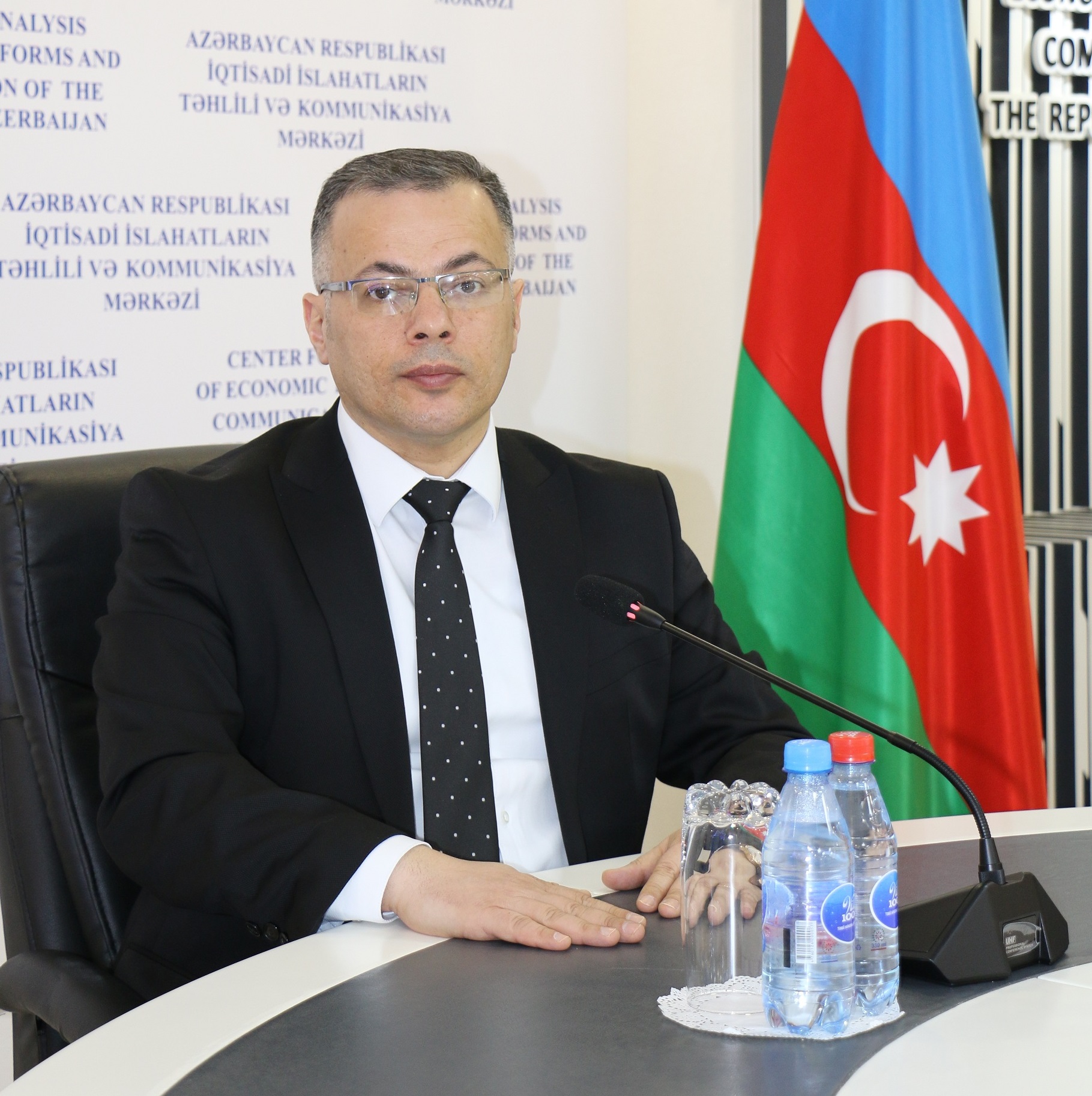
Vusal Gasimli: Karabakh’s Economy Has 6 Main Directions and 4 Centers of Gravity
Executive Director of the Center for Analysis of Economic Reforms and Communication Vusal Gasimli stated that Karabakh’s economy will be developed in six main directions and ib four main centers of gravity based on public-private partnership. He said, “Karabakh's economy is expected to develop in six main areas: agrarian business, food industry, mining, green energy, transport and logistics, and tourism. 200 thousand hectares of agricultural land and more pastures, as well as tens of thousands of hectares of unused land along the former front line, form the resource base of agrarian business. According to calculations, in the medium term, the contribution of the Karabakh region to the country's agriculture will be 10.4 percent. It is planned to develop the mining industry in Karabakh at the expense of 167 mineral resources. Particularly, there are broad opportunities to make Kalbajar the center of the mining industry in the region due to the Soyudlu field. The impact of the Karabakh region on the mining industry in our country may be 5.3 percent, and the processing industry - 4.3 percent.
Being a transport and logistic center, the Jabrayil region is located on the lines of communication with Turkey and Iran, as well as those connecting Karabakh with other regions. The impact of the Karabakh region on transport services in Azerbaijan is estimated at 4.9 percent. Shusha will become a major driver of tourism not only in Karabakh but in Azerbaijan as a whole. In the coming years, it will become the cultural center of the Islamic and Turkic world. As the largest city in the Karabakh region with a population of 70,000, Aghdam can serve as a center of light industry and service provision
The potential of 0.5 GW of wind, 0.7 GW of water, and 4 GW of solar energy paves the way for the Karabakh region to become a green energy zone. Khudaferin, Maiden Tower, and Sugovushan stations, as well as small hydropower plants in Kalbajar and Lachin, can meet the primary energy needs of the Karabakh region. BP's intention to invest in green energy in Karabakh is an additional impetus not only to attract investments in alternative energy but in the Karabakh region as a whole.”
V.Gasimli said that although the main burden on ensuring security in Karabakh, including demining and infrastructure creation, falls on the state budget, international development partners, the private sector, and diaspora investments can be crucial in reviving the economy. Also, up to 2030, the economy of Karabakh can reach 5-10 percent of the non-oil sector of Azerbaijan.









Op-eds
Agil Asadov
Head of the Strategic planning division
"Azerbaijan-China Relations: Formation and Perspectives"
Isa Gasimov
Head of the “Enterprise Azerbaijan” portal
Social entrepreneurship is an important tool for economic sustainability
Vusala Jafarova
Head of the Turkic World Research Center
"Driving Economic Integration and Digital Transformation: Azerbaijan’s Strategic Leadership in the Organization of…
Vusala Jafarova
Head of the Turkic World Research Center
"Azerbaijan’s Admission to the D-8: Strengthening Economic Cooperation with Global Potential"
Vusala Jafarova
Head of the Turkic World Research Center
Turkic States Economic Outlook for the First Half of 2024: Growth, Trade, and Investment Trends
Agil Asadov
Head of the Strategic planning division
Moody's: Growing influence of the Middle Corridor boosts economic prospects
Vusala Jafarova
Head of the Turkic World Research Center
The Karabakh Declaration and the future of economic cooperation of the Turkic world